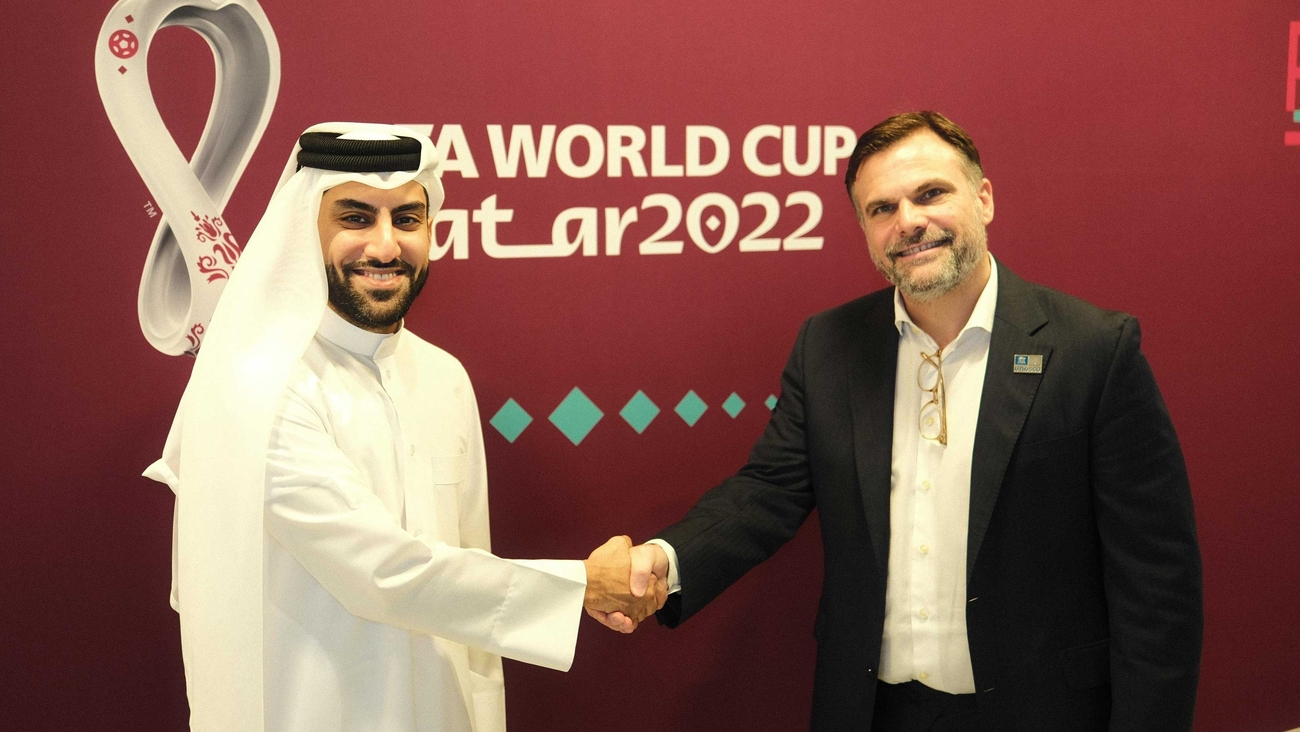
Now, with the FIFA Men’s World Cup Qatar 2022 having passed and the 2026 championship in the United States, Canada, and Mexico approaching, the time has come to take stock of the concept of ‘Human and Social Legacy’ planning alongside mega sporting events (MSEs).
For those unfamiliar, the Generation Amazing (GA) Foundation is the human and social legacy initiative stemming from the FIFA Men’s World Cup Qatar 2022. What had its inception as a FIFA mandate for a sustainable legacy has become a global movement. Over the past 14 years, GA has reached over a million young individuals across 75 countries. Our mission transcends football: it is about instilling lasting values not just in the host nation but spanning the Arab world and extending to the global community. Our initiative leverages the universal appeal of football to connect with the upcoming generation of educators, entrepreneurs, politicians, philanthropists, and innovators.
Over the past 14 years, we understood the underlying issue for an integrated approach and policy coherence is the need for an emphasis on the interconnection of Sport for Development and Peace (SDP) organizations within a complex ecosystem, as well as the significance of breaking down silos to enable cross-sector collaboration. It was therefore an obvious choice to collaborate with the UNESCO Chair on Governance and Social Responsibility in Sport for further boosting the goal towards solving global development concerns and creating long-term impact. Indeed, through the UNESCO Chair’s network, higher education and research institutions all over the globe pool their resources, both human and material, to address pressing challenges and contribute to the development of their societies. The networks and Chairs often serve as think tanks and bridgebuilders between academia, civil society, local communities, research, and policy-making. Acknowledging that UNESCO seeks to promote the development and the practice of sporting activities to foster social integration in different cultural and political contexts, the Chair underscores that the governance of sports institutions that have assumed such a responsibility has a bearing on the quality and impact of the designed sports programs and interventions, and consequently on the (end-) users/beneficiaries.
GA, as an organization, is firmly positioned and active in the Global South, we aim to partner with organizations that tackle inequality globally, focusing on capacity building and fostering South-South cooperation to reduce reliance on the Global North. This is consistent with our objective of leaving a legacy that transcends national borders, emphasizing the importance of SMEs, such as the FIFA World Cup, in developing global relationships and information
exchange across a multitude of partners in more than 75 countries globally. Crucial to this is an emphasis on evidence-based practices. As many organizations understand, an expansion of the evidence base through substantial monitoring and evaluation is critical to building a program that is fit for purpose and constantly evolving. This strategy is critical for highlighting the actual benefits that SMEs can bring to global development goals.
So, what does this mean for SME organizers, and how can we look to further the agenda of holistic capacity building? The legacy of an SME is a product, not a by-product; it should be intentionally prepared so that it is consistent with local, national, and international development policy objectives. It requires multilateral stakeholder involvement in the bidding process and legacy plans that can be integrated with sustainable development goals. Our partnership with Concacaf (The Confederation of North, Central America and Caribbean Association Football) is an exemplar of this, co-designing a curriculum that tackles the most pressing issues in the region, which has been delivered in over 30 countries since 2022, and by 2026 will have been delivered in all 41 member associations of the confederation. But we must go even further. The next edition of the FIFA World Cup, and any SME for that matter, can look for concrete evidence that legacy occurs. We shall pull resources together and aim for controlled experimental studies for the understanding of causal relationships between specific human capacity programs and specific types of beneficiaries’ (or otherwise) behaviors.
The potency of partnerships is especially palpable in the footballing universe. Casting our eyes towards the upcoming 2026 FIFA World Cup, we call upon MSE organizers to look beyond their respective locales. This vision doesn't rest solely on the on-pitch action or the event's gleam. It hinges on partnerships: a diverse yet unified body keen on embedding a lasting imprint on global communities. The 2022 FIFA World Cup in Qatar is pioneering in this aspect, facilitating an inaugural bridge between successive World Cups, ensuring legacies are not standalone but linked, all underpinned by the ethos of partnerships and palpable change.
Partnerships for the Goals isn't just a buzzword from SDG speak, but an ethos of cooperative ambition. A sentiment that embodies entities rallying together, surmounting barriers and uniting for the larger good. In football, a simple handshake often conveys respect and camaraderie. Shouldn't World Cup legacy also reflect the same spirit?
The shared ethos is straightforward: genuine impact mandates nurturing partnerships anchored in mutual vision. In today's interconnected era, isolation is a myth. Our might lies in unity, shared ambitions, and interwoven objectives.
About the authors
Mr Nasser Al Khori is the Executive Director at the Generation Amazing Foundation, and sits on the Advisory Committee of the UNESCO Chair on Governance and Social Responsibility in Sport.
Instagram | LinkedIn | X/Twitter
Dr. Christos Anagnostopoulos is the Founder and Director of the UNESCO Chair on Governance and Social Responsibility in Sport. He is an Assistant Professor in Sport Management at Hamad Bin Khalifa University (Qatar), where he teaches the MSc in Sport and Entertainment Management, a joint program with the University of South Carolina (USA).
LinkedIn | LinkedIn (Hamad Bin Khalifa University) | Instagram (Hamad Bin Khalifa University)
